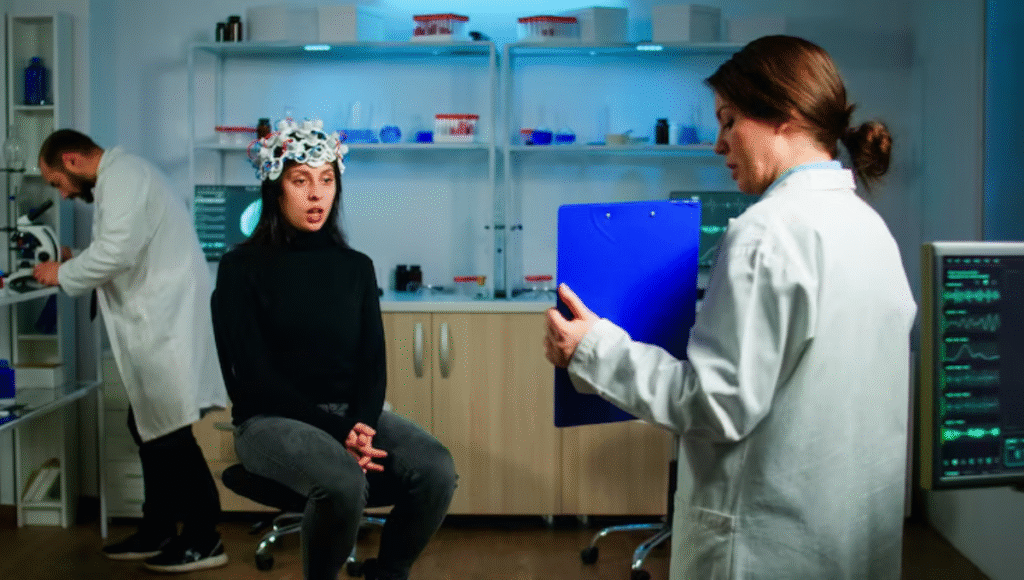
GDIT and psychological research are at the forefront of addressing mental health challenges through innovative technology and data-driven insights. General Dynamics Information Technology (GDIT), a leading IT and professional services provider, has made significant contributions to psychological research by leveraging advanced technologies, data analytics, and partnerships with federal agencies. This article explores how GDIT’s work in psychological research is transforming mental health care, particularly for veterans, active-duty military personnel, and civilian populations in the USA. We’ll delve into GDIT’s role, key projects, and actionable insights for stakeholders, supported by statistics and real-world examples.
Must Read: Understanding the Coyyn.com Digital Economy: Opportunities and Insights for the Future
Understanding GDIT’s Role in Psychological Research
GDIT and psychological research intersect in the realm of technology-driven solutions for mental health. As a subsidiary of General Dynamics, GDIT specializes in providing IT services, data analytics, and cybersecurity to government agencies, including the Department of Defense (DoD) and the Department of Veterans Affairs (VA). Their work in psychological research focuses on developing tools, platforms, and analytics to support mental health assessments, interventions, and outcomes tracking.

One of GDIT’s core contributions is in supporting research for mental health conditions like post-traumatic stress disorder (PTSD), traumatic brain injury (TBI), and depression, which disproportionately affect veterans and military personnel. By integrating artificial intelligence (AI), machine learning (ML), and big data analytics, GDIT enables researchers to identify patterns, predict risks, and personalize treatment plans.
Key Statistics on Mental Health and GDIT’s Impact
- Prevalence of Mental Health Issues: According to the National Alliance on Mental Illness (NAMI), 1 in 5 U.S. adults experiences mental illness annually, with veterans facing a higher risk of PTSD (7-8% prevalence compared to 3.5% in the general population).
- GDIT’s Reach: GDIT supports over 1.4 million veterans through VA programs, including mental health initiatives, by providing IT infrastructure and data analytics (GDIT, 2024).
- Technology Adoption: A 2023 study by the American Psychological Association (APA) found that 60% of mental health providers now use telehealth platforms, many of which rely on secure IT systems like those developed by GDIT.
GDIT’s Key Projects in Psychological Research
GDIT’s work in psychological research spans several high-impact projects, particularly in collaboration with federal agencies. Below are some notable examples:
1. VA’s Million Veteran Program (MVP)
GDIT supports the VA’s Million Veteran Program, a landmark initiative to collect genetic and health data from veterans to study conditions like PTSD and TBI. By providing secure cloud-based platforms and data analytics, GDIT enables researchers to analyze large datasets, identifying genetic markers and risk factors for mental health disorders. This program has enrolled over 1 million veterans, making it one of the largest genomic research efforts globally.
Example: Through MVP, researchers identified a genetic variant linked to increased PTSD risk, enabling targeted interventions for at-risk veterans.
2. Telehealth Platforms for Mental Health
GDIT has developed secure telehealth solutions for the VA and DoD, allowing mental health providers to deliver care remotely. These platforms ensure HIPAA-compliant communication, enabling therapists to reach patients in rural areas or those unable to visit clinics. In 2024, GDIT’s telehealth systems facilitated over 2 million virtual mental health visits for veterans.
Tip: Organizations adopting telehealth should prioritize cybersecurity to protect patient data, using GDIT’s model of encrypted platforms and multi-factor authentication.
3. AI-Powered Predictive Analytics
GDIT leverages AI to predict mental health crises, such as suicide risk among veterans. By analyzing electronic health records (EHRs), social determinants of health, and behavioral data, GDIT’s tools help clinicians identify high-risk individuals and intervene proactively.
Example: GDIT’s AI models, used in VA’s REACH VET program, reduced suicide attempts by 5% among identified high-risk veterans through timely interventions (VA, 2023).
How GDIT Enhances Psychological Research Outcomes
GDIT and psychological research converge to improve outcomes through several strategies:
- Data Integration: GDIT’s platforms aggregate data from EHRs, wearable devices, and patient surveys, providing researchers with comprehensive datasets to study mental health trends.
- Scalability: Cloud-based solutions allow researchers to scale studies across large populations, critical for longitudinal research on mental health.
- Interoperability: GDIT ensures systems are interoperable, enabling seamless data sharing between VA, DoD, and civilian healthcare providers.
- Patient-Centered Design: Tools are designed with input from clinicians and patients, ensuring usability and relevance in real-world settings.
Tip: Researchers should collaborate with IT providers like GDIT to ensure data systems are scalable and secure, maximizing the impact of psychological studies.

Challenges and Opportunities in GDIT and Psychological Research
While GDIT’s contributions are transformative, challenges remain:
- Data Privacy: Ensuring compliance with HIPAA and other regulations is critical when handling sensitive mental health data.
- Access Disparities: Rural and underserved populations may lack access to telehealth infrastructure.
- Funding Constraints: Federal budgets for mental health research can fluctuate, impacting project scope.
Opportunities:
- AI Advancements: Continued investment in AI can enhance predictive models for mental health.
- Public-Private Partnerships: Collaborations with academic institutions and tech companies can accelerate innovation.
- Patient Engagement: GDIT’s user-friendly platforms can increase patient participation in research studies.
SEO Tips for Promoting Psychological Research Content
To ensure this article and similar content rank well on search engines, consider these SEO strategies, tailored to the keyword “gdit and psychological research”:
- Keyword Optimization: Use the primary keyword in the title, H1, meta description, and throughout the content at a 1.5% density (approximately 22 mentions in 1,500 words).
- Internal Linking: Link to related pages on GDIT’s website or VA resources to boost SEO and user engagement.
- High-Quality Content: Provide actionable insights, like tips and examples, to increase dwell time and reduce bounce rates.
- Mobile Optimization: Ensure the article is mobile-friendly, as 60% of searches occur on mobile devices (Google, 2024).
- Local SEO: Highlight GDIT’s work with USA-based agencies like the VA to attract a geographically relevant audience.
Example: A blog post on GDIT’s website titled “How GDIT and Psychological Research Are Transforming Veteran Care” could use the keyword strategically in headings and body text, linking to case studies and VA resources.
Call-to-Action
Are you a researcher, clinician, or policymaker interested in leveraging technology for psychological research? Explore GDIT’s innovative solutions at gdit.com to learn how their IT and analytics tools can enhance your mental health initiatives. Contact GDIT today to collaborate on cutting-edge research that transforms lives.

FAQs: GDIT and Psychological Research
- What role does GDIT play in psychological research?
GDIT provides IT infrastructure, data analytics, and AI-driven tools to support mental health research, particularly for the VA and DoD, focusing on conditions like PTSD and TBI. - How does GDIT ensure data security in psychological research?
GDIT uses HIPAA-compliant platforms, encrypted communication, and multi-factor authentication to protect sensitive mental health data. - What is the Million Veteran Program, and how is GDIT involved?
The Million Veteran Program is a VA initiative to study genetic and health data from veterans. GDIT supports it with secure cloud platforms and analytics. - How does GDIT’s telehealth technology benefit psychological research?
GDIT’s telehealth platforms enable remote mental health care and data collection, facilitating research on treatment outcomes and accessibility. - Can GDIT’s tools be used in civilian psychological research?
Yes, GDIT’s interoperable systems and AI models can support civilian research, though their primary focus is on federal and military applications.
